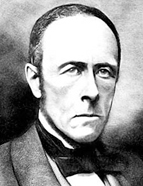

Thus, his main idea was to use historiography to bring political and religious centralism, understood as a major threat to his times, before a kind of history court where everything would be done to ensure its conviction and the annulment of its effects on future history.
In line with such purpose, the main narrative focus of the book seeks to account for the intricate negotiations between Lisbon and Rome which, after over twenty years, led to the establishment of the Inquisitorial Court in 1536. In Herculano’s view, the Portuguese Inquisition was the result of the contentious and adverse encounter between generalised corruption in the Roman Curia and the moral decadence imposed on the Portuguese monarchy by the advance of absolutist centralisation in the first decades of the 16th century. In his book, various historical figures are presented as villains but none receives the extent of negative criticism as king João III. Herculano exposes the establishment of the Inquisition as the product of the personal intention of this political actor who, as he insists on reiterating or implying, had none of the virtues and talents one would expect from a good monarch. The book also highlights the attempts of the cristãos-novos [new Christians or forced converts] to hinder the diplomatic negotiations around the establishment of the Inquisitorial court, often with recourse to the payment of bribes. Furthermore, he lends an emphatic and damning tone to the recollection of innumerable cases of the popular and inquisitorial persecution of the Jews on the Iberian Peninsula. By bringing to the foreground deeply negative experiences linked to slaughter, fanaticism, tyranny, and corruption, Herculano produces an overabundance of historiographical moralisation which is not restricted to its effects on political arguments but also extended to the religiosity sphere. An excerpt from the text where this is evident is that in which the author suggests he might be acting as a “tool of divine justice”” (História da Inquisição em Portugal, I, 11).
A significant shift in emphasis, most evident in the book on the Inquisition and, overall, in Herculano’s writings from the 1850s onwards, is his growing recourse to rhetorical forms and images which signal his disbelief in the future of the country. While Herculano as the writer of História de Portugal was more expository and optimistic about the future, in the 1850s, following the controversy surrounding the miracle of Ourique, his closer political group's failure to set the tone for the Regeneration, his multiple controversies in the press, his personal skirmishes in the Academia das Ciências and Torre do Tombo, the advance of Ultramontanism, his short administrative experience as Mayor of the Belém Council, he became more reactive and pessimistic and geared his efforts towards criticizing centralism.
